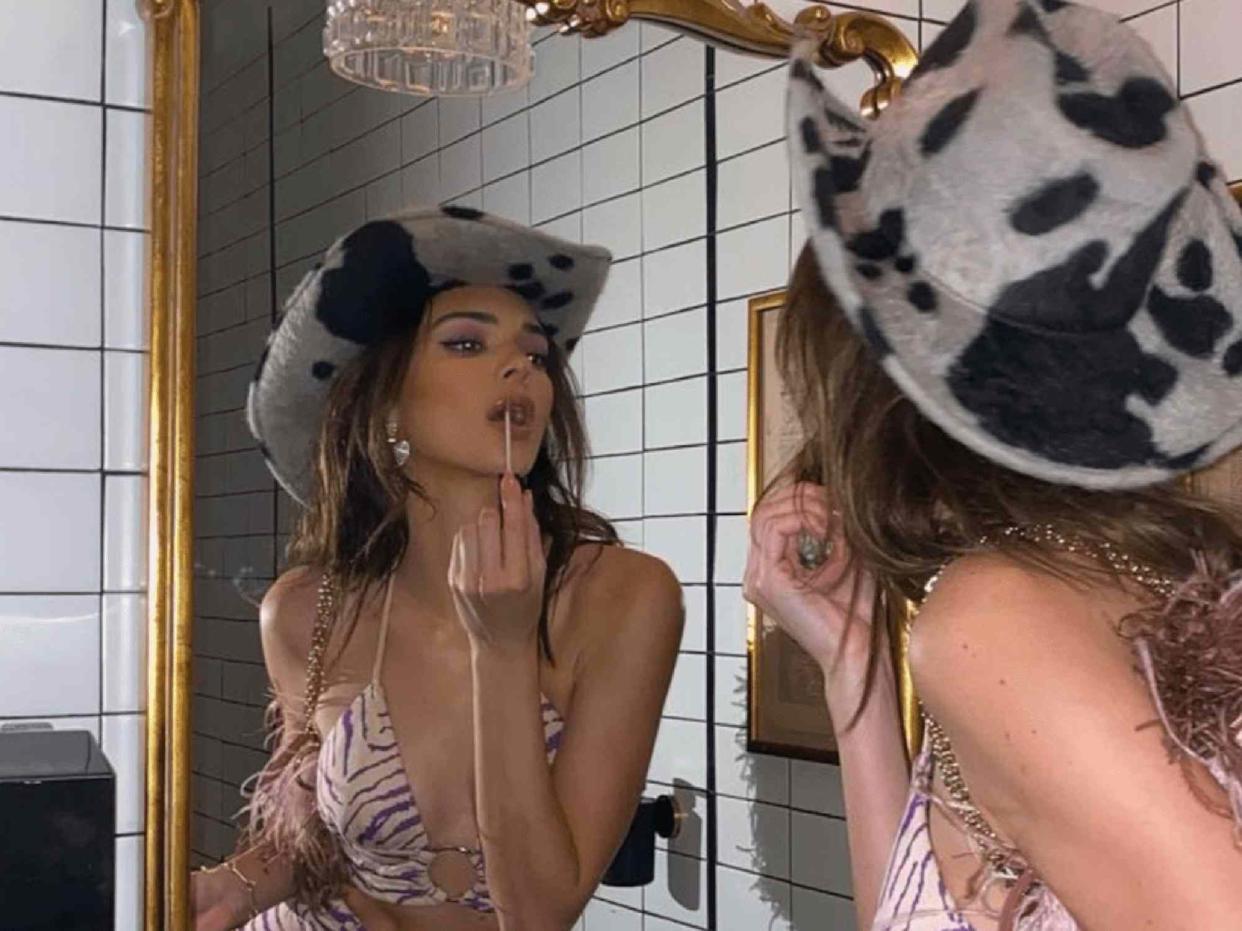The Best Makeup Lighting for Precise Application
Reviewed by Ashley Rebecca
It's an age-old makeup dilemma: You look a certain way in your bathroom mirror and then completely different everywhere else. The good news? The problem probably isn't your makeup skills, but your lighting—which, when done wrong, seriously affects your routine. For example, fluorescents can make us put too much makeup on, and pink-tinted lights can lead us to miss a few spots. Our makeup studios (aka bathrooms) deserve better illumination, and so do our faces.
We talked to the experts—Riki Loves Riki co-founder Wanchen Kaiser and pro makeup artist Charlie Riddle—and did some research to figure out how to hack makeup lighting. Keep scrolling to find out how to achieve the best lighting for applying makeup.
Meet the Expert
Wanchen Kaiser is the co-founder and CMO of Glamcor and Riki Loves Riki.
Charlie Riddle is a makeup artist for Stila Cosmetics.
What Is the Best Makeup Lighting?
The best condition for applying makeup is a warm or natural light source. Natural sunlight provides the most accurate reflection of your face. "Natural light is the most ideal, as that's how you would be seen in real life," says Kaiser. She recommends sitting behind a window with natural light as an optimal spot for applying makeup. Riddle agrees: "Natural light is going to [provide] the most accurate sense of how you will look," he says. "So many times you hear, 'I got ready in my bathroom, and [when] I walked outside, my foundation was too dark or too light.' If you get ready in natural light or in front of a window, you know it'll look the same."
For those cloudy days when fresh rays aren't an option, white light is your best bet. Kaiser tells us it's the closest to daylight and is best for all types of content, as it closely resembles the color spectrum of natural light while evenly distributing light across the entire face. "You can also play around with cool lighting as well, but LED lights are more efficient due to less heat, more light, and better quality," she says.
"Soft lights are going to be the most flattering and give the skin a smooth and airbrushed look," says Riddle. "I always use soft lights when taking any video or photo content with clients."
How to Install Makeup Lights
When installing lights in your bathroom, you want to create cross illumination or side lighting to ensure that the light evenly diffuses across your whole face. Beware of setting up lights solely above the mirror: They'll illuminate the forehead, forcing you to tilt your head too far up and making it difficult to apply makeup precisely.
Buying the right bulbs is also essential to creating the perfect atmosphere for makeup application. The GE Energy Efficient Reveal bulb in 75 or 100 watts is great, as is anything LED.
Tips
A trick to setting up your lights is to check the mirror; the most illuminated section of the mirror should be at eye level.
Lighting Mistakes to Avoid
Both experts agree that white light is the best artificial lighting for makeup application because the colors will be true to tone. If white light isn't an option, do your best to steer clear of the below to avoid potential beauty blunders.
Fluorescent lighting: Cool, fluorescent white light can be unforgiving and overly bright, and is perhaps the furthest from natural light. This may cause you to overdo it with foundation, bronzer, or blush to compensate for the lack of color on your face.
Mood lighting: "While [mood lighting] is great after you are finished with makeup, you might think you look great while applying and come out with everything looking different," says Riddle. Illuminate your area where you can get a clear picture of your face without the accent lights.
Golden-Hour lighting: It's great for photography, but golden-hour lighting isn't the best for doing your makeup. According to Riddle, it will make everything seem warmer and won't give you an accurate sense of color.
Pink light: Rosy light may sound great in theory, but pink lighting can actually be a mirage while getting ready. Due to our radiant appearance in this lighting, we tend to slack on the concealer, only to realize that we missed a blemish or dark spot after setting our makeup.
Downlighting: Remember when you were a kid and used to hold a flashlight under your chin to look scary? Well, this is the same thing. Downlighting (and overhead lighting) tends to cast shadows under the eyes. If you're limited, a blend of both is your best bet for application.
Lighting Alternatives
If you're not up to changing the lighting wherever you do your makeup, consider investing in a quality makeup mirror instead. "Find a mirror that will mimic daylight color lighting, is high-definition (that provides the best clarity), and is easy to travel with," recommends Kaiser. The Riki Loves Riki Riki Babe Travel Set ($285) checks all the boxes.
The Final Takeaway
"Applying makeup with proper lighting is key," says Kaiser. "If you don't have good light, there is a chance your makeup won't turn out as well as it could have (no matter the talent)." While natural light is optimal for the truest makeup application, sunny days and south-facing windows aren't always an option. Luckily, soft white lighting installed at just the right angles can offer a high-fidelity reflection so you can step out the door with confidence.
Learn More: The 7 Best Lighted Makeup Mirrors of 2023, Tested and Reviewed
Read the original article on Byrdie.
